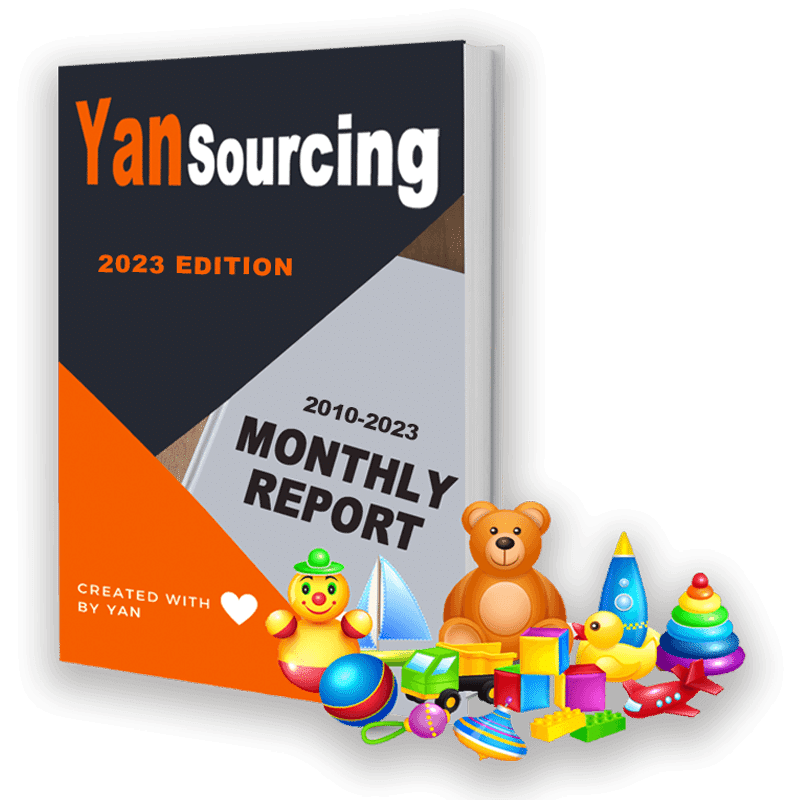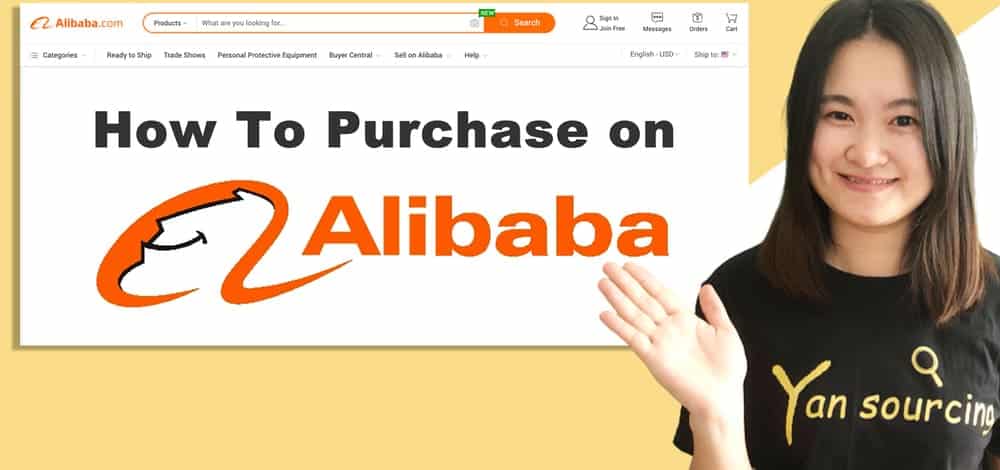
Are you looking to purchase products from Alibaba for your private label business?
Buying from Alibaba can be a great way to access a wide range of products at competitive prices, but it is important to know how to navigate the platform and make informed buying decisions.
In this article, we will provide a definitive guide on how to buy from Alibaba, covering everything from finding suppliers to negotiating prices and making payments.
What Is Alibaba?
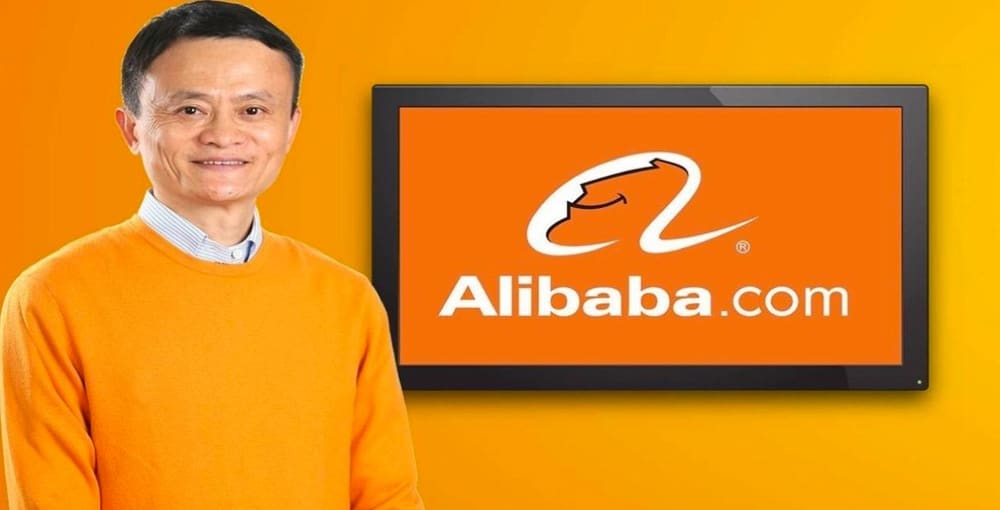
Alibaba is a multinational conglomerate holding company based in Hangzhou, China.
It was founded in 1999 by Jack Ma and a group of co-founders and is one of the largest online and mobile commerce companies in the world.
The company’s core business is its B2B e-commerce platform, Alibaba.com, which connects global buyers with suppliers in China.
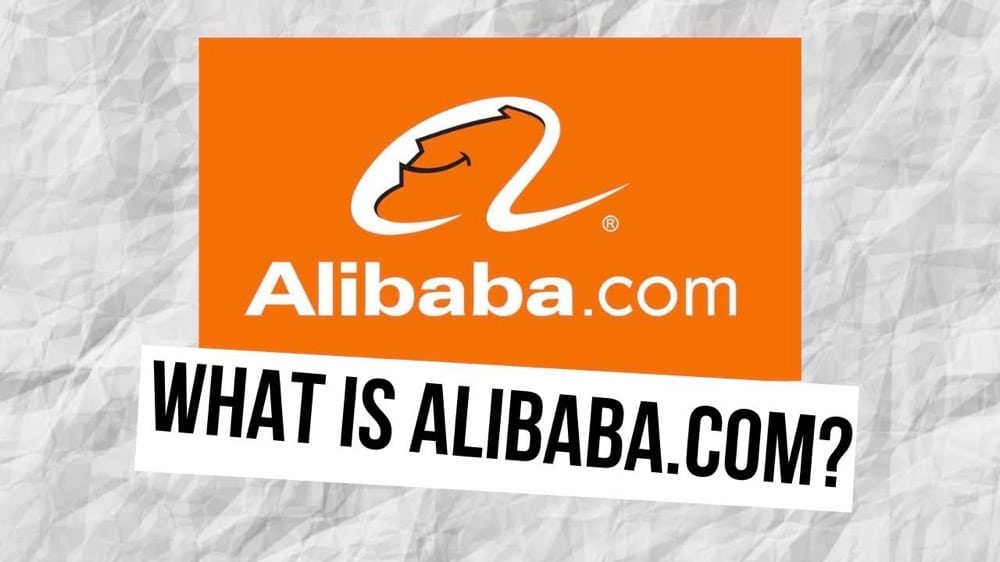
Some of the key features of Alibaba.com include:
B2B marketplace: Alibaba is a global business-to-business (B2B) marketplace connecting millions of buyers and suppliers from around the world.
Wide product range: The platform offers a wide range of products from various categories such as electronics, machinery, clothing, and more.
Verified suppliers: Alibaba verifies the identity and credibility of its suppliers, which ensures a safe and secure trading environment for buyers.
Trade assurance: The platform offers a trade assurance program to protect buyers from product quality and delivery issues.
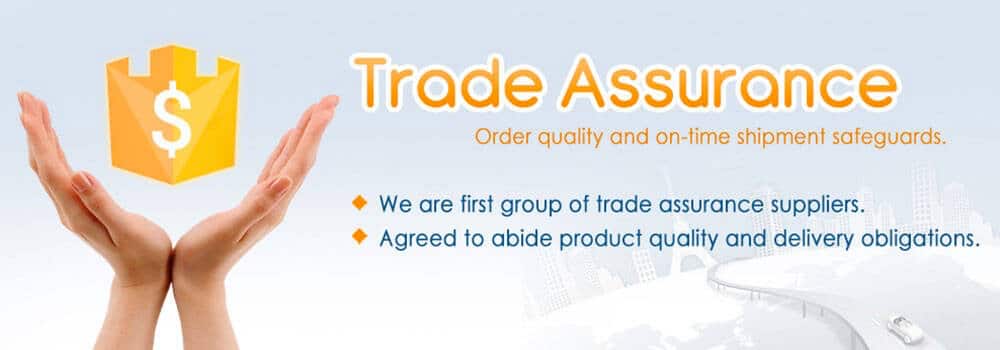
Customized quotes: Buyers can request customized quotes from suppliers, allowing them to negotiate the price and other terms of the transaction.
Multi-language support: Alibaba supports multiple languages, making it easier for buyers and suppliers from different countries to communicate and transact.
Secure payment options: The platform offers secure payment options, including escrow services and letters of credit, to ensure the safety of transactions.
Logistics services: Alibaba provides a range of logistics services, including international shipping and customs clearance, to help buyers receive their products smoothly.
Customer support: Alibaba offers 24/7 customer support to assist buyers and suppliers with any questions or concerns they may have.
Who Should You Buy from on Alibaba?
When buying from Alibaba, there are different types of suppliers that you may encounter, including Gold Suppliers, non-Gold Suppliers, factories, and trading companies.
Gold Suppliers vs non-Gold Suppliers
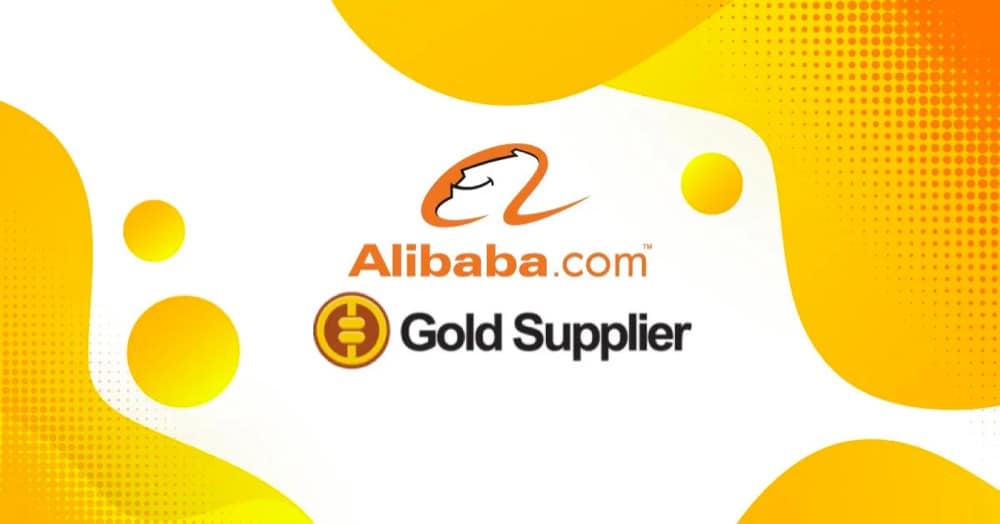
Gold Suppliers are suppliers who have purchased a premium membership and have undergone a verification process by Alibaba.
The verification process involves checking the supplier’s business license, location, and other credentials.
The goal of this verification process is to provide buyers with a higher level of confidence in the authenticity and credibility of the supplier.
Non-Gold Suppliers are suppliers who have not gone through the verification process and have not purchased a premium membership.
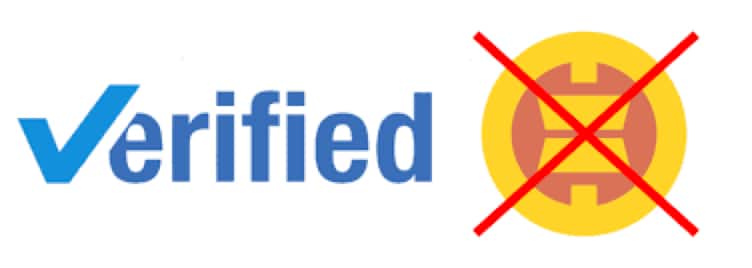
This does not necessarily mean that these suppliers are not legitimate, but it does mean that buyers will have a lower level of confidence in their authenticity and credibility.
In general, Gold Suppliers tend to enjoy more visibility and credibility on Alibaba, which can translate into more sales opportunities.
They also have access to additional features and services, such as trade assurance and buyer protection programs, which provide additional security for buyers.
Factories vs Trading Companies
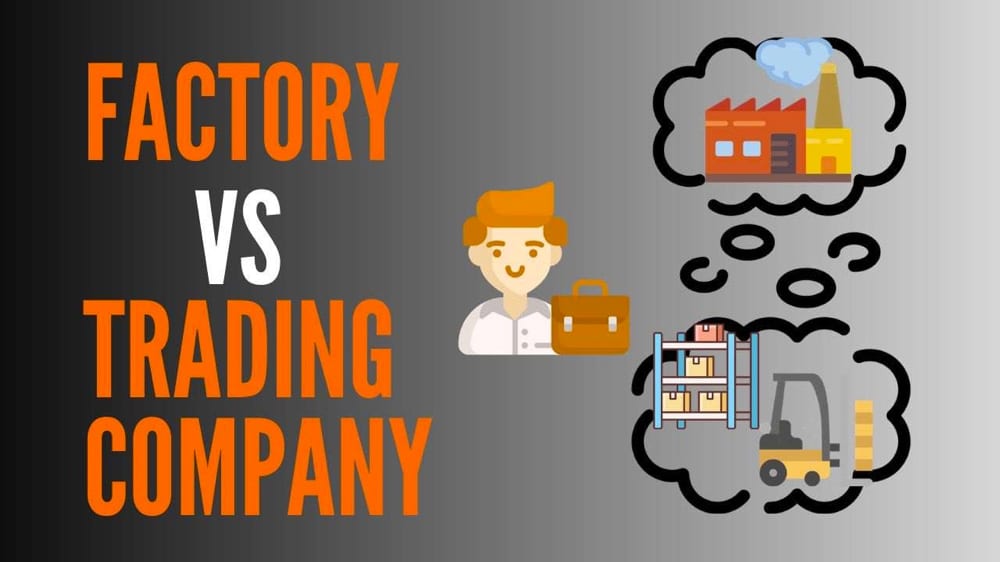
Factories are manufacturers that produce products and sell them directly to buyers. They typically have the ability to create custom products to meet the specific requirements of a buyer.
When dealing with a factory, you are dealing directly with the source of the product and can often negotiate lower prices for larger orders.
However, factories usually have minimum order quantities (MOQs) that must be met before they will accept an order.
Trading companies act as intermediaries between buyers and factories. They source products from a number of factories and then sell them to buyers.
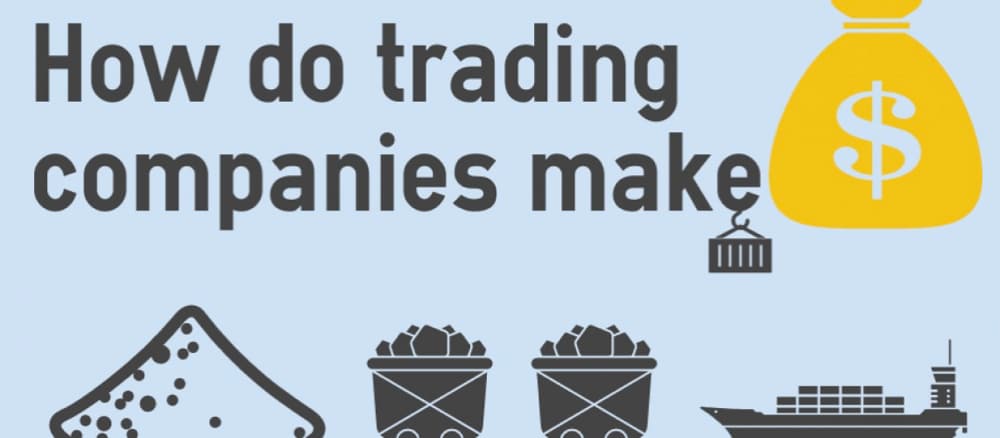
Trading companies typically have smaller MOQs than factories and can offer a wider range of products.
However, they typically charge a markup on the products they sell, so the prices may be higher than if you were to purchase directly from a factory.
If you are looking for a specific product and have a large order, it may be more cost-effective to deal directly with a factory.
However, if you have a smaller order and are looking for a wider range of products, a trading company may be a better option.
How to Buy from Alibaba in 9 Steps?
Buying from Alibaba can be a daunting process, especially for first-time buyers.
But by following the below steps, you can find reputable suppliers on the platform and source the quality products you need for your business.
Step 1: Determine Your Sourcing Needs
Before you start sourcing from Alibaba, it is important to have a clear idea of what you are looking for.
This can help you make informed purchasing decisions on Alibaba and increase your chances of success in the global marketplace.

Here are some tips to help you determine your sourcing needs:
Identify the products you need: The first step is to make a list of the products you need, prioritize them based on your business needs, and identify the products that are essential for your operations.
Determine the specifications you require: Once you have identified the products you need, please determine the specifications also. This could include factors such as product size, color, materials, quality standards, and packaging requirements.
Set a target price: Determine the price you are willing to pay for the products you need. This will help you set a budget and find products that meet your quality standards and price requirements.
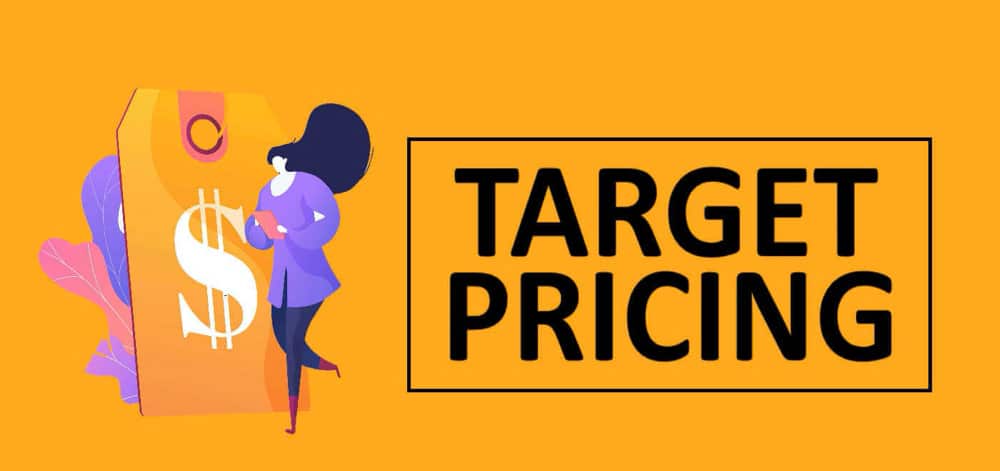
Consider your order volume: Consider the volume of products you need to order. Alibaba suppliers often have minimum order quantities, so it’s important to know how many products you need to order to ensure that you can meet the supplier’s requirements.
Consider your delivery schedule: Consider the schedule for delivery of the products you need. If you need the products by a certain date, it’s important to communicate this to the supplier and ensure that they can meet your delivery schedule.
Consider your relationship with the supplier: Consider your relationship with the supplier and whether they can meet your ongoing needs. This could include factors such as their location, their capacity to produce the products you need, and their ability to communicate effectively.
Step 2: Set up an Alibaba Account
Setting up an Alibaba account is a quick and easy process. Please make sure to use a strong and unique password, and never share your password or other sensitive information with anyone.
Here are the steps to set up your Alibaba account:
Go to the Alibaba website: The first step is to go to the Alibaba website. You can do this by typing www.alibaba.com into your web browser’s address bar.
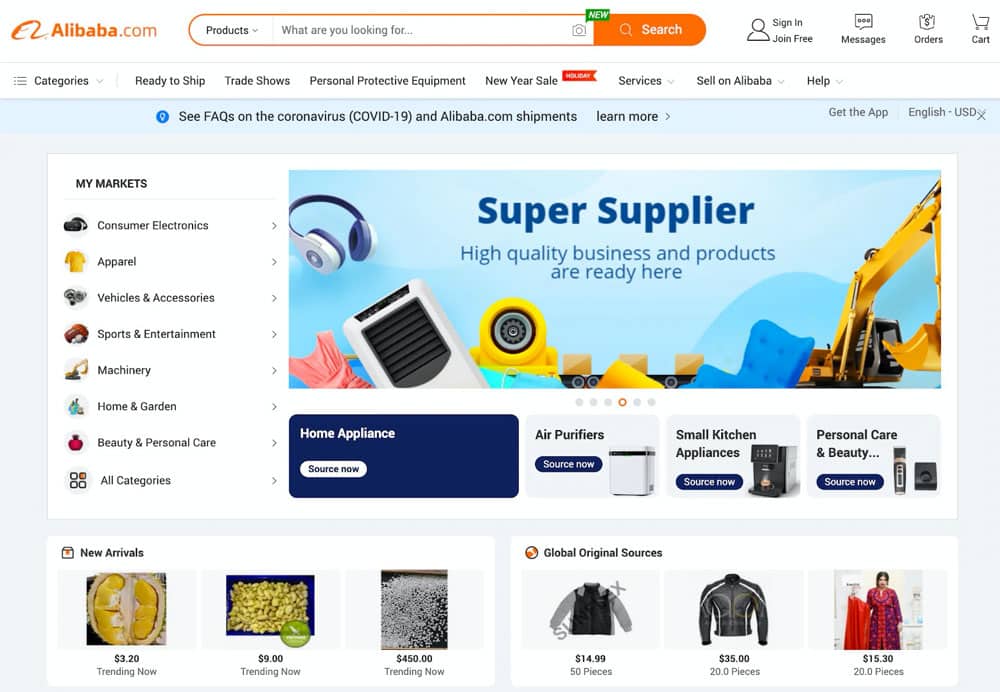
Click on “Join Free”: Once you are on the Alibaba homepage, you will see a “Join Free” button in the top right corner or you may go to the login page directly. Click on this button to start the registration process.
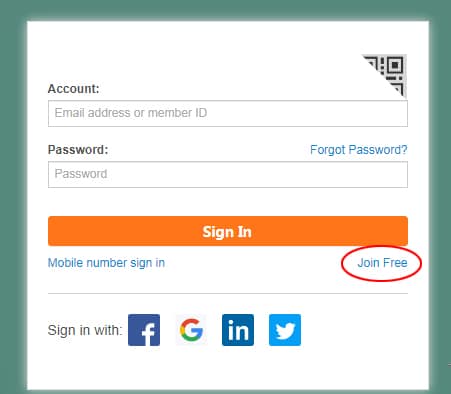
Enter your basic information: You will be prompted to enter some basic information, such as your name, email address, and password.
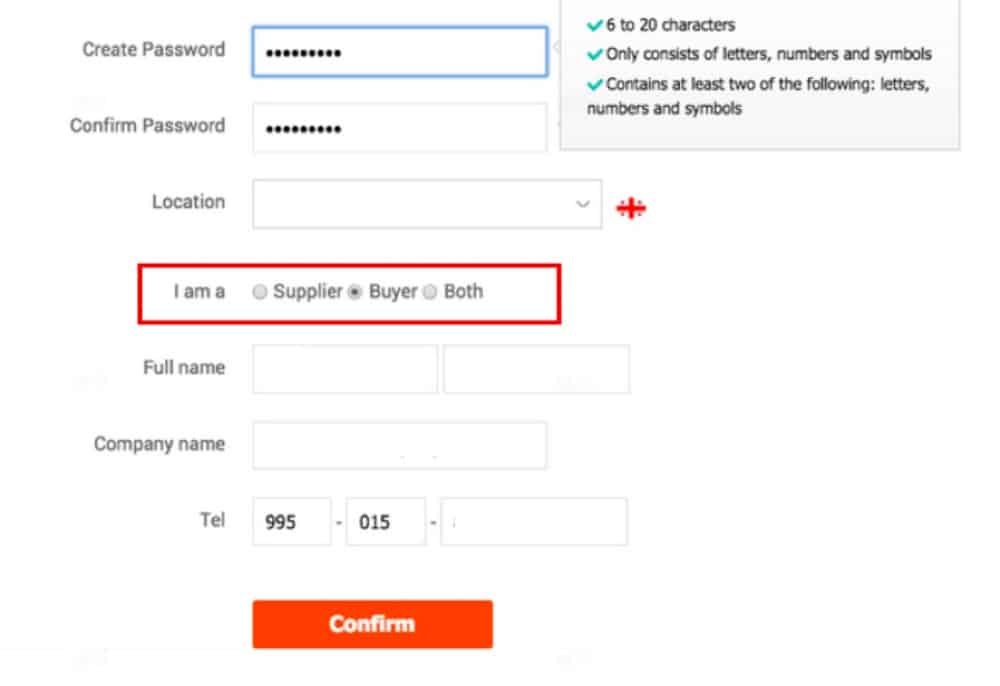
Verify your email address: After entering your basic information, Alibaba will send you an email to verify your email address. Click on the link in the email to complete the verification process.
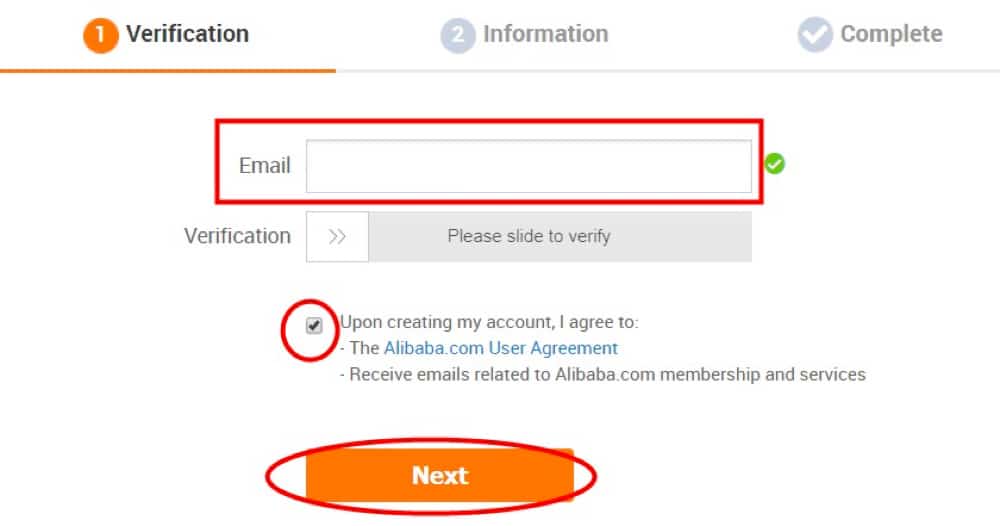
Complete your profile: Once you have verified your email address, you will be asked to complete your profile. This includes providing additional information, such as your company name, business type, and contact information.
Choose a membership level: Alibaba offers different membership levels, ranging from a free basic membership to a premium membership with additional features and benefits. Choose the membership level that best fits your needs.
Step 3: Search for Products/Suppliers
Searching for products and suppliers on Alibaba is a critical step in the buying process, as it provides buyers with access to a wide range of products and information about suppliers.
Here are some tips to help you find the right products and suppliers on Alibaba:
Use the search bar: Alibaba’s search bar is an easy and efficient way to find products and suppliers on the platform. Type in keywords that describe the products or suppliers you are looking for.

Browse product category: Alibaba offers a wide range of product categories that you can browse to find the products you need. You can find these categories on the Alibaba homepage or in the navigation menu.
Use the filter: Alibaba’s filters can refine your search results based on trade assurance supplier or verified supplier, ready to ship or paid sample, and price/location/order quantity.
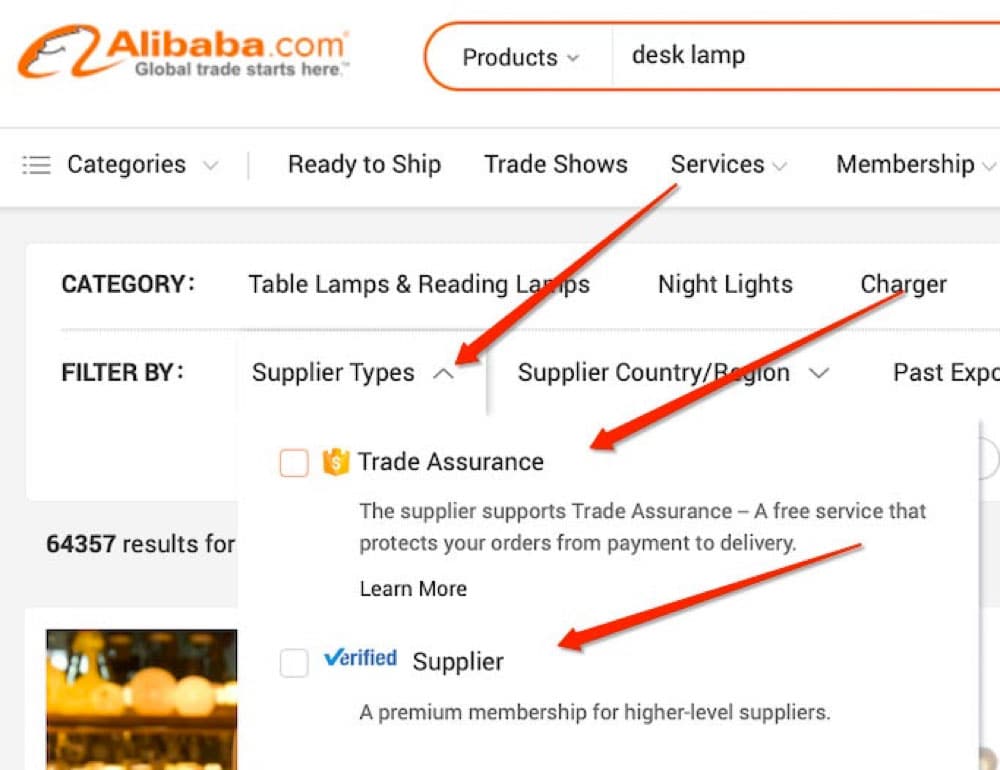
Check product description and images: When you find a product that meets your needs, check the product description and images carefully. Make sure that the product meets your requirements in terms of quality, size, and materials.
Step 4: Vet the Supplier’s Credentials
Before you make a purchase from a supplier on Alibaba, it’s important to vet their credentials and ensure that they are reputable and reliable suppliers.
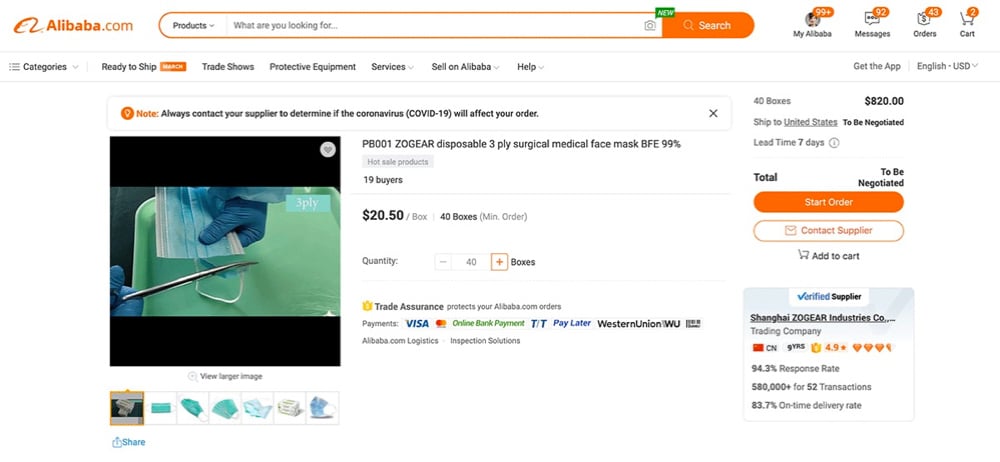
Here are some tips to vet a supplier’s credentials on Alibaba:
Check the supplier’s profile: You can do this by clicking on the “Company Profile” tab on their profile page. This can include information such as their location, business type, and transaction history.
Check their trade assurance: Alibaba offers a Trade Assurance program, which provides protection for buyers if the supplier does not meet the terms of the order. Check if the supplier has Trade Assurance and ensure that the order terms are covered by it.

Check their ratings and reviews: Alibaba has a rating and review system that allows buyers to rate and review suppliers. Check the supplier’s ratings and reviews to see what other buyers have said about their experience with the supplier.
Check their certifications: Check if the supplier has any certifications that are relevant to the products they sell, such as ISO or CE certifications. This can be an indication of the supplier’s quality standards and reliability.
Check their production capacity: If you are planning to place a large order, check if the supplier has the production capacity to meet your needs. Ask for details on their production capacity, lead times, and order volume capabilities.
Step 5: Contact the Supplier
When you find a supplier that you are interested in, you can contact them by clicking on the “Contact Supplier” button on their profile page.
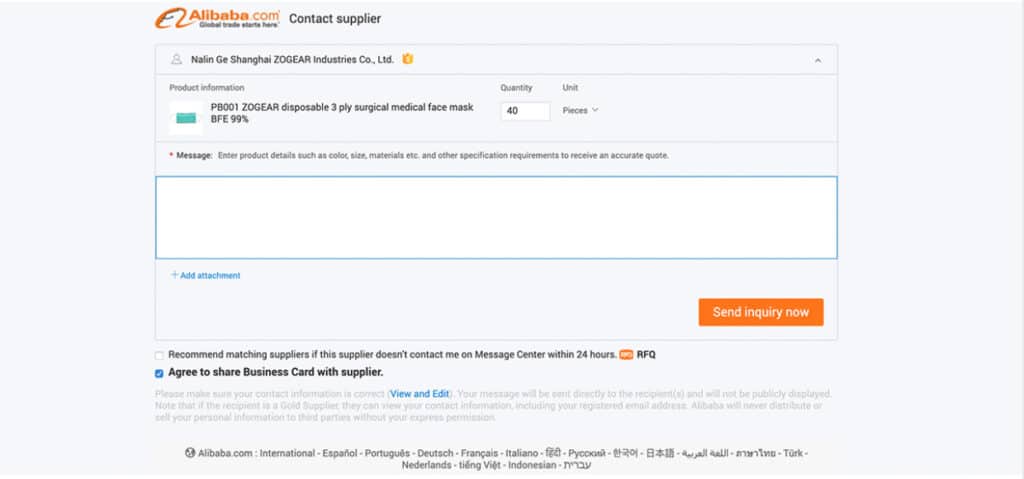
Here are some tips to help you contact suppliers more effectively:
Be specific in your message: When you contact a supplier, be specific about what you are looking for and what your requirements are. This will help the supplier understand your needs and provide you with the right information.
Ask for more information: If you need more information about a product or supplier, don’t hesitate to ask. This can include information such as pricing, minimum order quantities, shipping options, and delivery times.
Negotiate the price: If the supplier’s price is not within your budget, you can negotiate with the supplier to see if they can offer a better price. Be sure to negotiate respectfully and professionally.
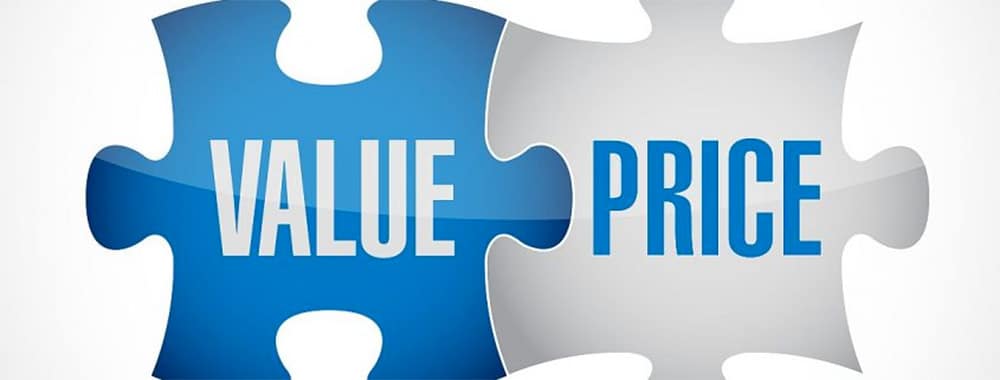
Check for any additional fees: Check for any additional fees or charges that may be associated with the purchase, such as customs fees or taxes. Make sure that you are aware of these fees before placing an order.
Clarify payment terms: Clarify the payment terms with the supplier, such as the payment method, payment schedule, and any fees or charges. Make sure that you understand the payment terms before placing an order.
Request a sample: If possible, request a sample of the product before placing an order. This will allow you to inspect the product’s quality and make sure that it meets your expectations.
Step 6: Place the Order
Once you have identified the right product and supplier on Alibaba and vetted their credentials, the next step is to place your order.
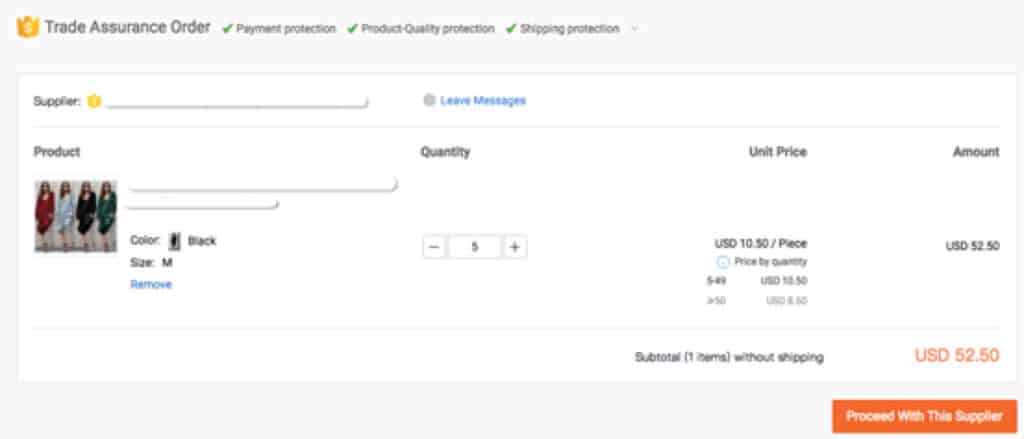
Please make sure you complete both of these things:
- Confirm the order details: Before placing the order, make sure that you have confirmed all the details with the supplier, including the product specifications, pricing, payment terms, delivery times, and shipping options.
- Confirm the shipping details: Confirm the shipping details with the supplier, including the shipping method, shipping cost, and any insurance or customs requirements. Make sure that you are aware of any additional fees or charges that may apply.
Step 7: Make the Payment
Once you have placed the order, you will need to make the payment.
It is important to make sure that you pay the supplier through a secure payment method to protect yourself from fraud.
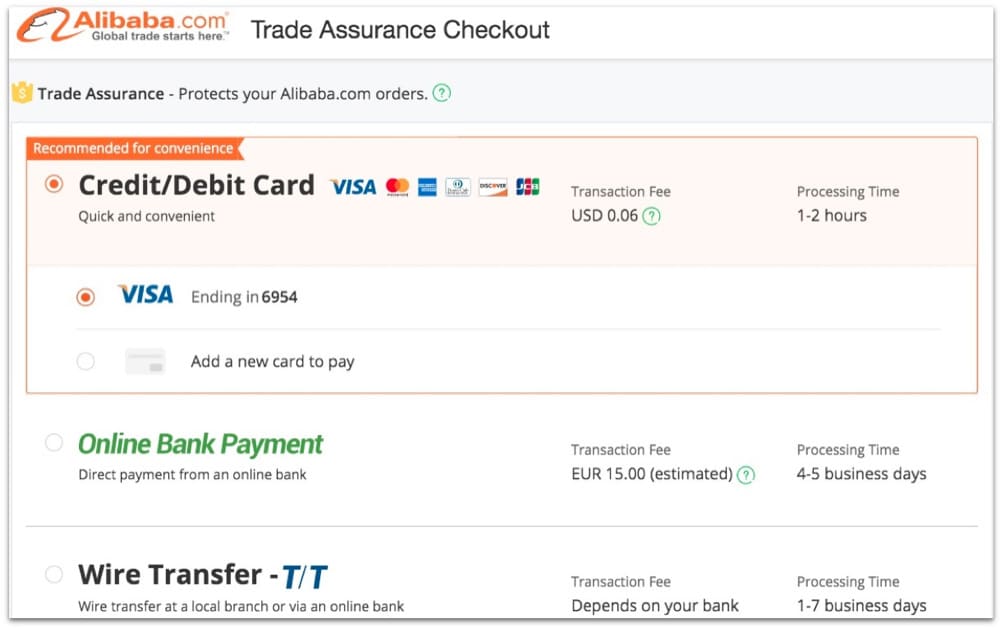
Here are some of the most commonly used payment methods on Alibaba:
Telegraphic transfer (T/T): This is a bank-to-bank transfer where the buyer transfers the payment to the supplier’s bank account. It’s a common payment method for large transactions and is often used when paying for goods in advance.
Letters of credit (L/C): A Letter of Credit is a guarantee from the buyer’s bank that the payment will be made to the supplier once the goods have been shipped and meet the agreed-upon specifications. It provides security for both the buyer and the supplier.
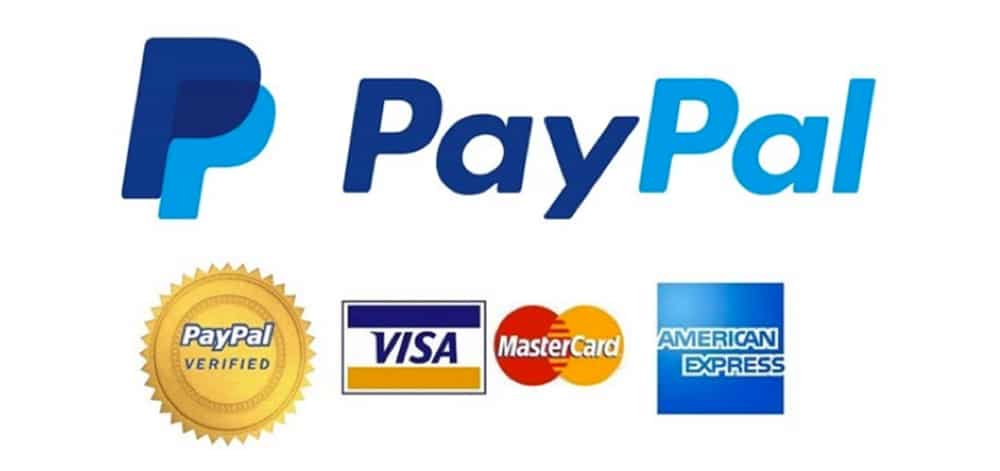
Escrow: Escrow is a secure payment service offered by Alibaba that protects both buyers and suppliers. The payment is held in a secure account until the goods have been received and confirmed to be of good quality.
PayPal: PayPal is a widely used online payment system that allows buyers to make payments securely and easily. It’s a good option for small transactions and provides an additional layer of security.
Credit cards: Alibaba also accepts payments made with major credit cards, including Visa, Mastercard, and American Express. This is a convenient payment option for buyers who want to make quick and easy payments.
Step 8: Track Your Order
After you have made the payment, you can track the progress of your order through the Alibaba website.
Here are the steps to track your order on Alibaba:
Log in to your Alibaba account: Go to the Alibaba website and log in to your account.
Click on “Orders”: Click on the “Orders” tab to view your current and past orders.

Locate your order: Locate the order you want to track and click on “View More” to view the order details.

Check the tracking information: Check the tracking information provided by the supplier in the “Shipping Details” section. This will show you the status of your order, including its location and expected delivery date.
Contact the supplier: If you have any questions or concerns about the status of your order, you can contact the supplier directly through the Alibaba messaging system.
Use the shipping carrier’s website: If the supplier has provided a tracking number, you can also track your order on the shipping carrier’s website. Simply enter the tracking number in the carrier’s tracking tool to view the status of your order.
Step 9: Leave Feedback
Once you have received your order and are satisfied with the products, it is a good idea to leave a review for the seller. You can write a review within 30 days after the order is completed.
Here are the steps to leave your feedback on Alibaba:
- Go to “Orders” > “all orders.”
- Filter the order type by completed
- Find the order you would like to leave feedback for
- Click “write a review.”

Your review will help other buyers make informed decisions about whether to do business with the seller, and will also provide valuable feedback to the seller about their products and service.
Is Alibaba Safe?
Buy on Alibaba is very secure with the best trade guarantee. The Alibaba Trade assurance program allows you to protect online purchases if you pay via the Alibaba website.
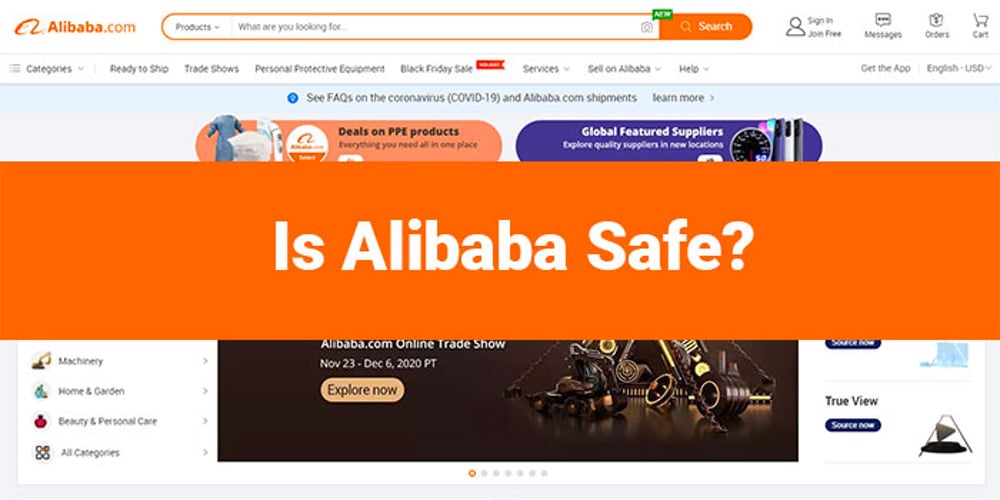
Here’s how it works:
Buyer makes payment: After the buyer makes the payment, Alibaba’s Trade Assurance service holds the funds until the buyer confirms receipt of the goods.
Seller ships the Goods: Once the seller confirms shipment, Alibaba informs the buyer and allows the buyer to inspect the goods.
Buyer confirms receipt: If the buyer confirms receipt, Alibaba releases the funds to the seller. If the buyer has any objections, they can request a refund.
Trade assurance resolution: If there is any dispute between the buyer and the seller, Alibaba’s Trade Assurance team will intervene to mediate and resolve the dispute.
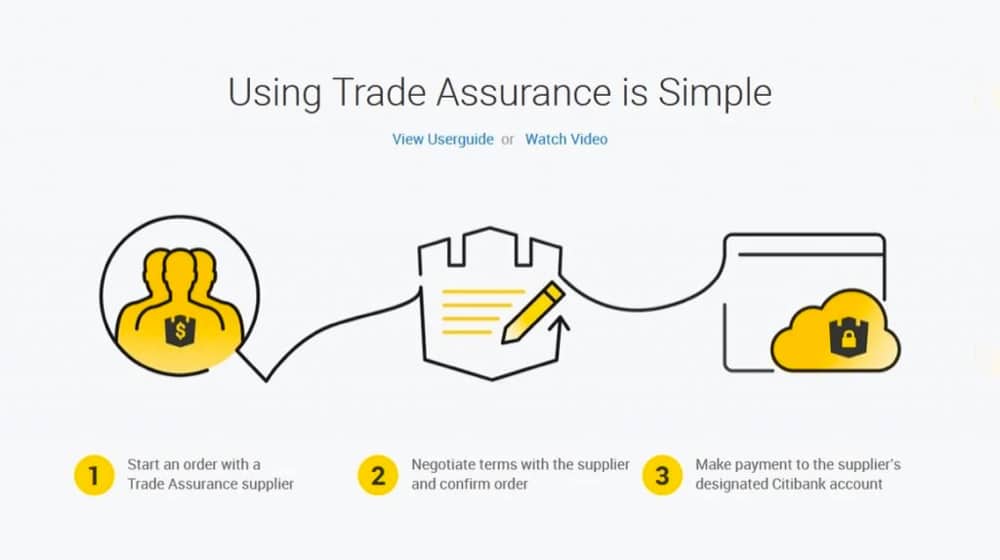
Trade Assurance does not charge any additional fees, however, you may incur a payment processing fee based on your payment option.
Alibaba’s customer service team can assist customers in identifying if a product has not received delivery within 30 days of delivery or if a customer has not received a response from the company.
In summary, Alibaba is considered to be a safe platform for conducting business, but it’s always important to take the necessary precautions to protect yourself.
What Are the Risks of Buying from Alibaba?
While buying from Alibaba can be a great way to find high-quality products at low prices, there are also some risks involved.

Here are some of the potential risks to be aware of when buying from Alibaba:
Quality control: There is no guarantee of product quality or authenticity when buying from Alibaba, as many suppliers offer products at extremely low prices, often resulting in low-quality or counterfeit goods.
Scams and fraud: Some sellers on Alibaba may be fraudulent or engage in dishonest practices such as selling fake products, offering lower-quality products than advertised, or not delivering products at all.
Language barrier: Most suppliers on Alibaba are based in China, which can result in language barriers that make communication difficult and may lead to misunderstandings or misinterpretations.

Shipping and logistics: Shipping and logistics can be a challenge when purchasing from Alibaba, as it can be difficult to know exactly when a product will arrive and whether it will be delivered in good condition.
Import and customs: Importing products from Alibaba can be complicated, as there may be additional customs fees, taxes, or duties that must be paid, which can increase the overall cost of the product.
Intellectual property infringement: Alibaba has been criticized for not doing enough to prevent intellectual property infringement, and some suppliers on the platform may sell counterfeit or trademark-infringing products.
6 Tips for Buying Safely on Alibaba
Alibaba is a popular platform for wholesale purchasing, but it’s important to exercise caution to ensure that you’re buying from a reputable supplier and avoiding scams.
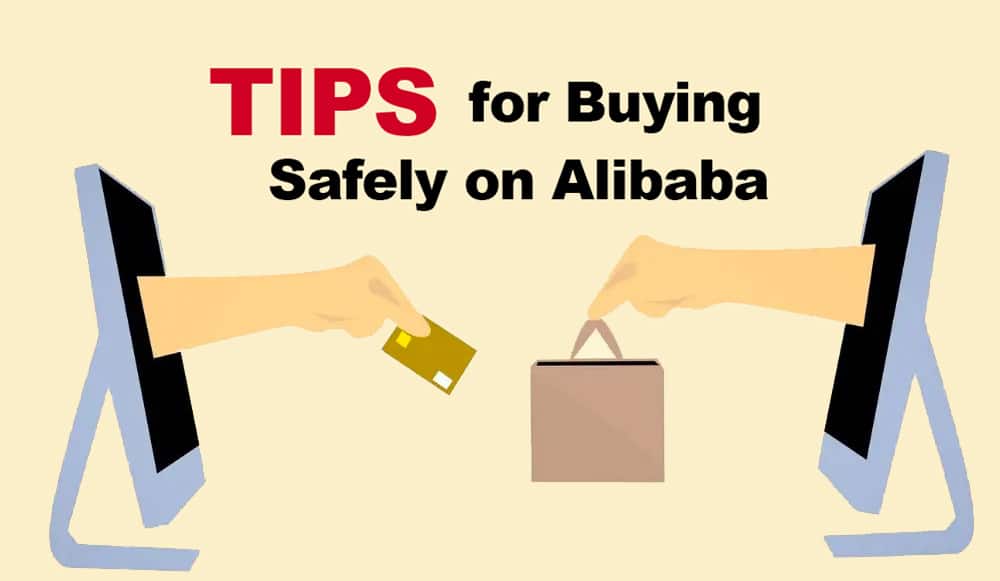
Here are some tips to help you buy safely on Alibaba:
Use verified suppliers: Alibaba offers a program called “Gold Supplier” that verifies the identity and credibility of suppliers. Consider buying from suppliers who have this verification.
Check the product and supplier reviews: Look for product and supplier reviews from other buyers. This can give you an idea of the quality of the product and the reliability of the supplier.
Ask for sample products: Before placing a large order, ask the supplier to send you a sample of the product. This will give you an opportunity to examine the product and assess its quality before placing a larger order.
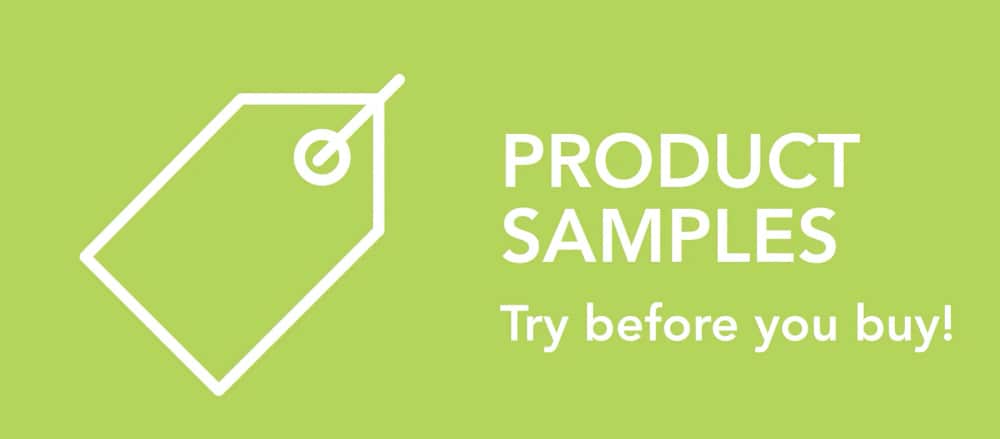
Negotiate the terms: Be sure to negotiate the terms of the sale with the supplier, including the price, shipping, payment terms, and delivery time.
Use secure payment methods: When paying for your purchases, use a secure payment method such as Alibaba’s Trade Assurance, PayPal, or a credit card. This will give you some protection in case the product is not as described or doesn’t arrive.
Inspect the goods before payment: If possible, arrange for a third-party inspection company to inspect the goods before you make payment. This will ensure that the product meets your quality standards and is as described by the supplier.
Keep records: Keep records of all communication and transactions with the supplier, including any promises they make and the agreed-upon terms.
Pros and Cons of Buying from Alibaba
Buying from Alibaba can have both advantages and disadvantages. Here are some of the pros and cons to consider:
Pros
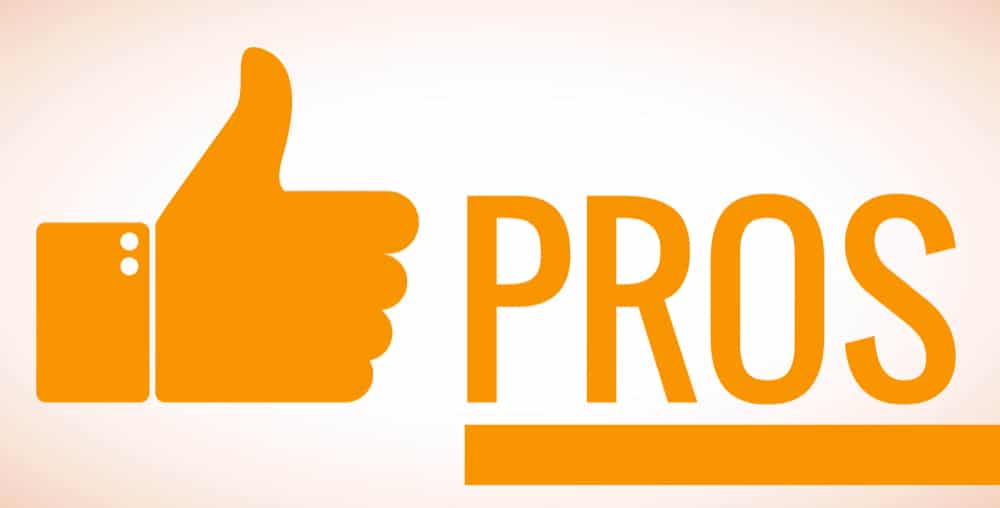
Wide selection: Alibaba is a massive online marketplace that connects buyers with sellers from all over the world. This means that you can find a wide variety of products on the platform, including those that may not be readily available in your local area.
Competitive prices: Because Alibaba connects buyers with sellers from all over the world, it allows buyers to shop around and compare prices from different sellers. This can help buyers get the best deal on the products they want.
Convenience: Alibaba makes it easy for buyers to find and purchase products from sellers all over the world. You can shop from the comfort of your own home and have the products delivered directly to you, saving you time and effort.
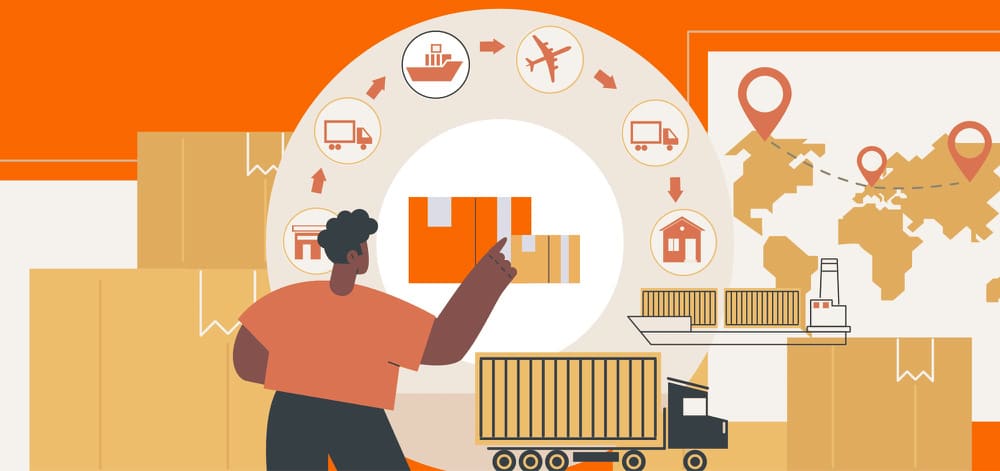
Payment protection: Alibaba offers payment protection to buyers through its Trade Assurance program. This program helps buyers ensure that they receive the products they ordered and that they are of the quality promised by the seller.
Customer service: Alibaba has a dedicated customer service team that is available to help buyers with any questions or concerns they may have. This can be particularly helpful if you encounter any issues with your order or have questions about the product.
Cons
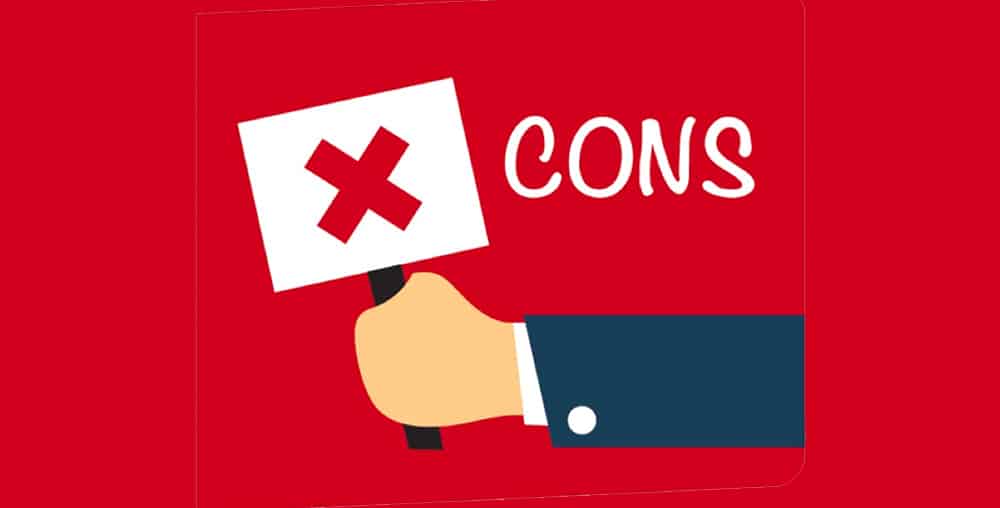
Quality concerns: Some buyers may be concerned about the quality of the products they receive when buying from Alibaba, as it can be difficult to verify the quality of products before purchasing.
Communication challenges: Depending on the location of the seller, there may be challenges with communication. This can make it more difficult to resolve any issues that may arise or to clarify details about the products being purchased.
Shipping and customs issues: When buying from sellers located in other countries, there may be additional challenges with shipping and customs. This can include longer shipping times and additional fees or delays due to customs clearance.
Common Terms When Buying from Alibaba
When buying from Alibaba, there are several terms that buyers should be familiar with. Here are some of the most common terms used on the platform:
MOQ (Minimum Order Quantity)
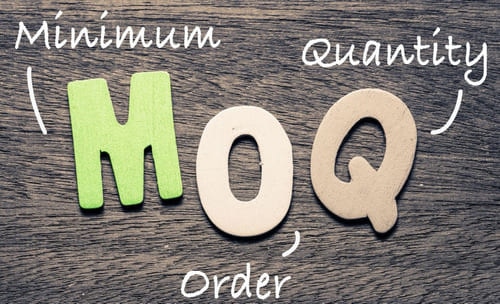
The minimum order quantity is the smallest amount of goods that a seller is willing to sell.
This may be a requirement for certain products or sellers, and it can vary depending on the product and the seller.
The MOQ is usually specified in the seller’s product listing and may be based on factors such as production costs, storage, and handling requirements, or the seller’s overall business model.
If you want to order less than the MOQ, you may need to negotiate with the seller or consider finding a different supplier.
FOB (Free On Board)

FOB is a pricing term that refers to the point at which the seller’s responsibility for the goods ends and the buyer’s responsibility begins.
In the context of Alibaba, this usually refers to the point at which the goods are loaded onto a vessel or plane for shipping.
The FOB price includes the cost of the goods, any applicable taxes, and the cost of loading the goods onto the transportation vehicle.
The buyer is responsible for all transportation costs and other fees after the goods are loaded onto the transportation vehicle.
CIF (Cost, Insurance, and Freight)

CIF is a pricing term that includes the cost of the goods, insurance, and freight charges up to the destination port.
The CIF price includes the cost of the goods, any applicable taxes, and the cost of transporting the goods to the destination port.
The buyer is responsible for any additional fees or charges that may be incurred after the goods arrive at the destination port, such as customs duties or handling fees.
EXW (Ex Works)

EXW is a pricing term that means the seller’s only obligation is to make the goods available at their premises.
The EXW price includes the cost of the goods and any applicable taxes but does not include any transportation costs or other fees.
The buyer is responsible for arranging and paying for all transportation and other fees related to getting the goods from the seller’s premises to the final destination.
OEM (Original Equipment Manufacturer)
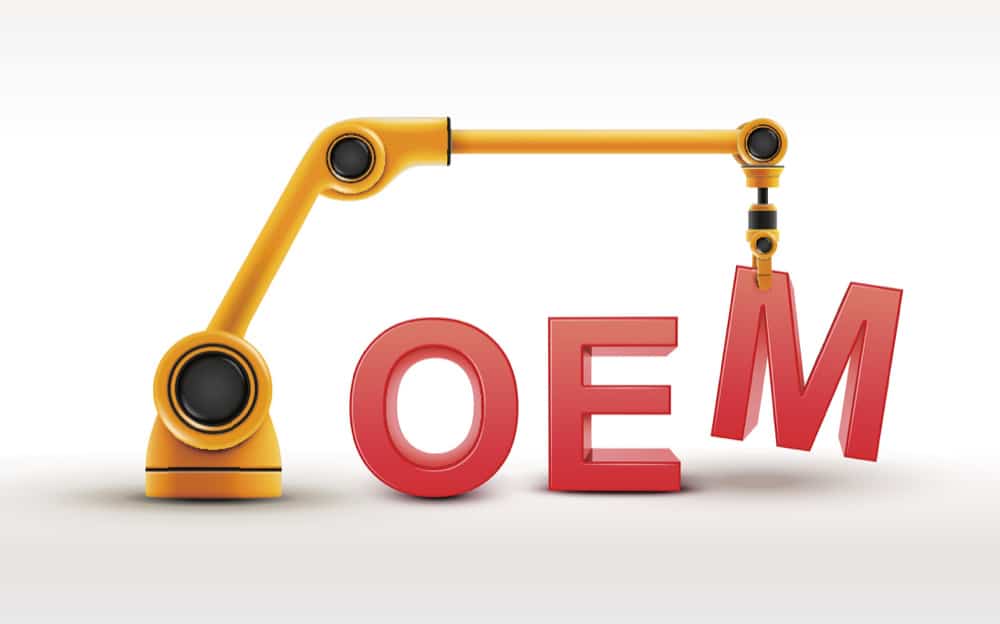
OEM refers to products that are made by one company for another company to sell under their own brand.
On Alibaba, you may encounter sellers offering OEM products, which are often lower in price than branded products.
OEM products are typically customized to meet the buyer’s specific needs and may be labeled with the buyer’s brand name or logo.
ODM (Original Design Manufacturer)
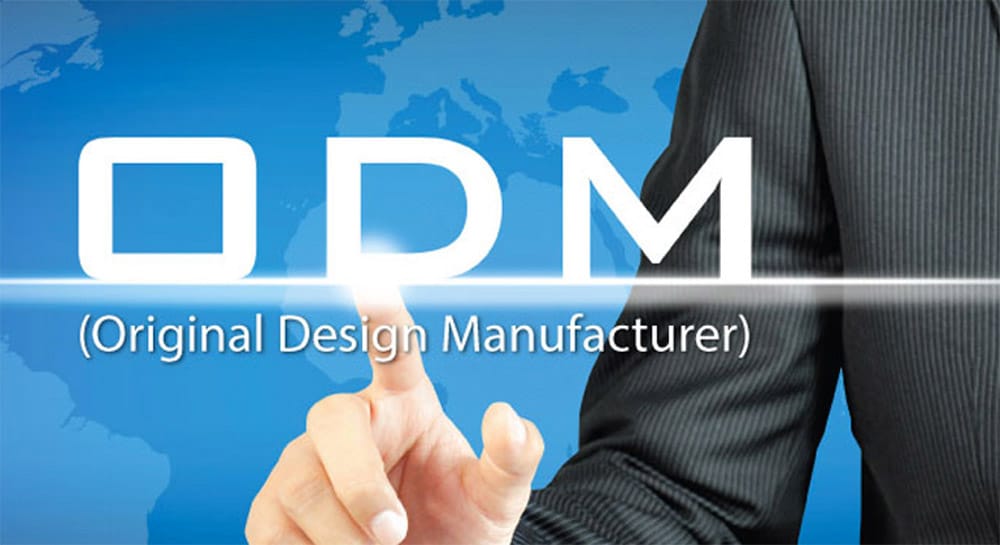
ODM refers to products that are designed by one company and manufactured by another company.
On Alibaba, you may encounter sellers offering ODM products, which can be customized to meet the buyer’s specific needs.
ODM products may be modified or rebranded to meet the buyer’s requirements, and the buyer may have control over the design and branding of the product.
8 Websites to Sell products from Alibaba
If you’re looking to sell products from Alibaba, there are several websites that you can use to reach a wider audience. Here are eight websites to consider:
Amazon

Amazon is one of the largest e-commerce platforms in the world, with a massive customer base.
Sellers can list their products on Amazon and reach a wide audience of potential buyers.
Amazon charges fees for selling on the platform, including referral fees, closing fees, and storage fees.
You can use Amazon’s FBA program to store your inventory and have Amazon handle shipping and customer service.
eBay
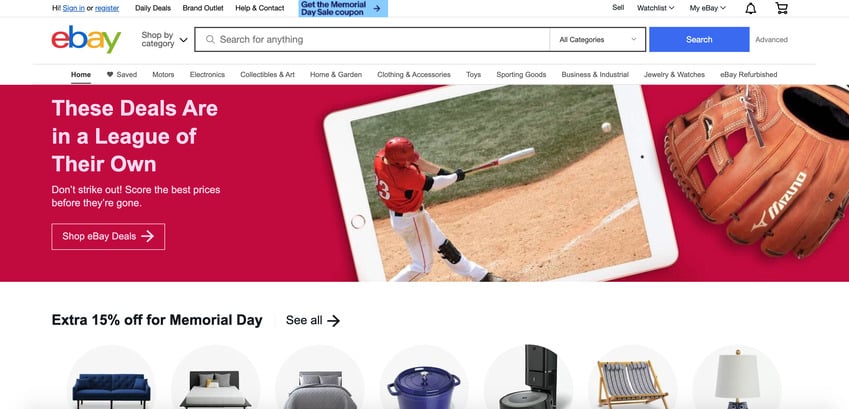
eBay is an online auction and shopping website that allows sellers to list products for sale.
You can use eBay to sell products from Alibaba, either at a fixed price or through an auction-style bidding process.
eBay charges fees for selling on the platform, including insertion fees, final value fees, and additional fees for optional features.
Shopify

Shopify is an e-commerce platform that allows sellers to create their own online store.
You can use Shopify to sell products from Alibaba, customize your store’s design, add products, and manage your online business using Shopify’s tools and features.
Shopify charges a monthly fee, as well as transaction fees for each sale made on the platform.
Walmart

Walmart is an e-commerce platform that allows third-party sellers to sell products on Walmart’s website.
You can use Walmart Marketplace to sell products from Alibaba, and Walmart provides tools and support to help you manage your online business, including product onboarding, order fulfillment, and customer support.
Walmart charges a referral fee for each item sold on the platform.
Etsy
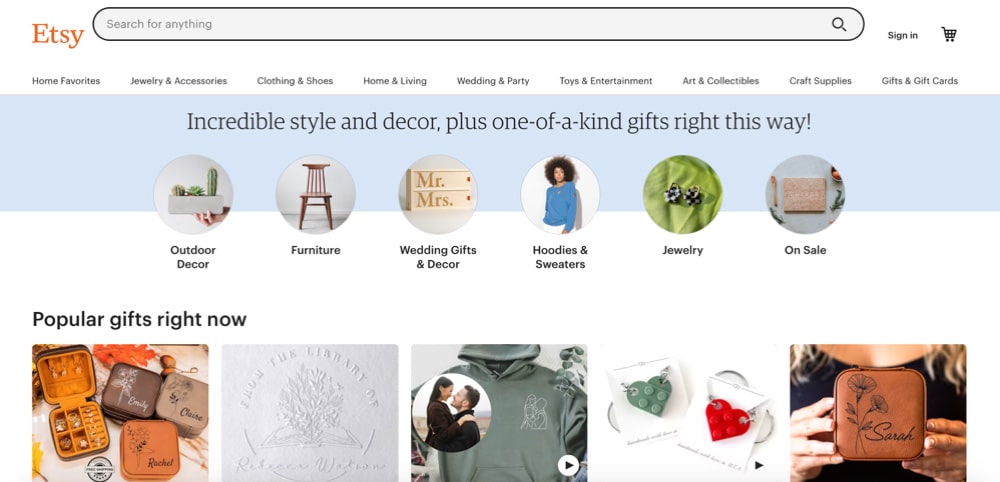
Etsy is a marketplace for handmade, vintage, and unique items.
You can use Etsy to sell products from Alibaba, as long as they meet Etsy’s guidelines for handmade or vintage items, or fall under their definition of “craft supplies.”
Etsy charges fees for selling on the platform, including a listing fee, transaction fee, and payment processing fee.
Newegg
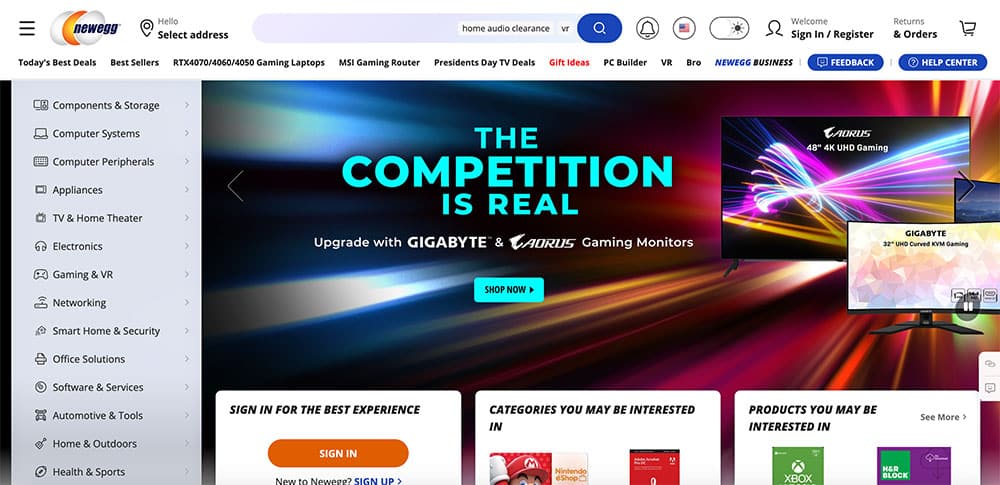
Newegg is an online marketplace that specializes in electronics, computer hardware, and software.
You can use Newegg to sell products from Alibaba in these categories, and reach a wide customer base of tech enthusiasts.
Newegg charges fees for selling on the platform, including a referral fee and a fulfillment fee for orders fulfilled through the platform.
Rakuten
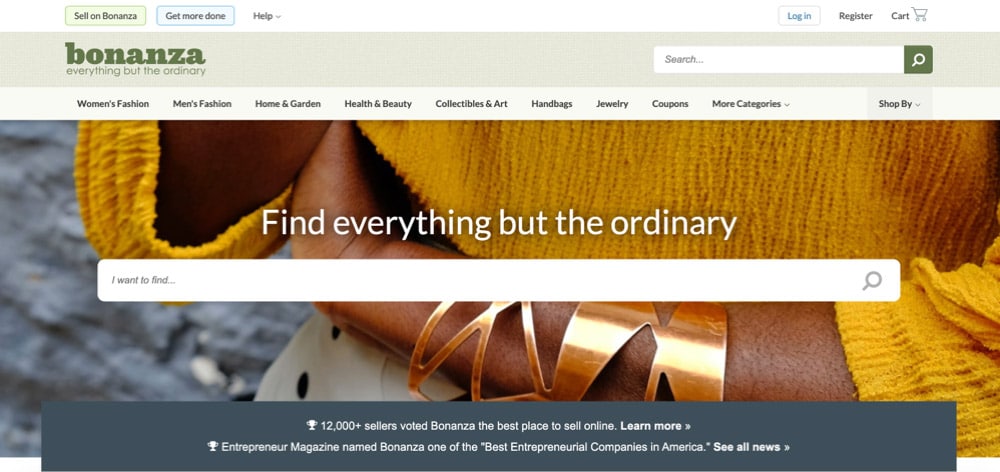
Rakuten is an e-commerce platform that connects sellers with buyers in Japan and other countries.
You can use Rakuten to sell products from Alibaba, and Rakuten provides tools and features to help you manage your online business and reach a wider audience.
Rakuten charges a monthly subscription fee and a transaction fee for each sale made on the platform.
Bonanza

Bonanza is an online marketplace that allows sellers to list their products for sale.
You can use Bonanza to sell products from Alibaba, and Bonanza offers a variety of tools and features to help you manage your online business, including marketing tools and support for shipping and payment processing.
Bonanza charges fees for selling on the platform, including a final value fee and optional fees for additional features.
In summary, when choosing which website to sell your products sourced from Alibaba, consider your target market, the type of products you’re selling, and your budget.
Each website has its own strengths and weaknesses, so choose the one that best fits your business needs.
FAQs
1. How Do I Find the Suppliers on Alibaba?
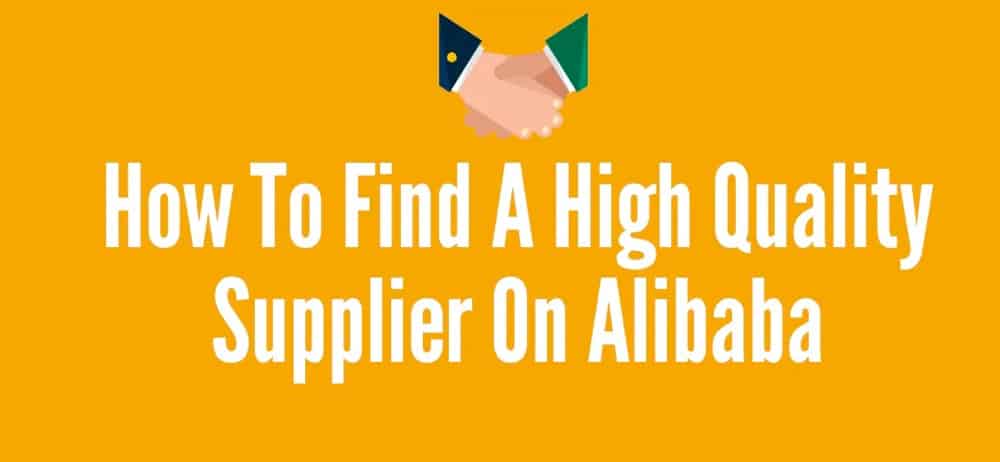
To find suppliers on Alibaba, you can use the search bar at the top of the page and enter keywords or categories.
You can also use filters to narrow down your search results, such as supplier features or product features.
You can also use Alibaba’s “Request for Quotation” feature, which allows you to post a request for a specific product or category, and suppliers can respond with their products and quotations.
2. How Do I Know If a Supplier on Alibaba Is Reliable?
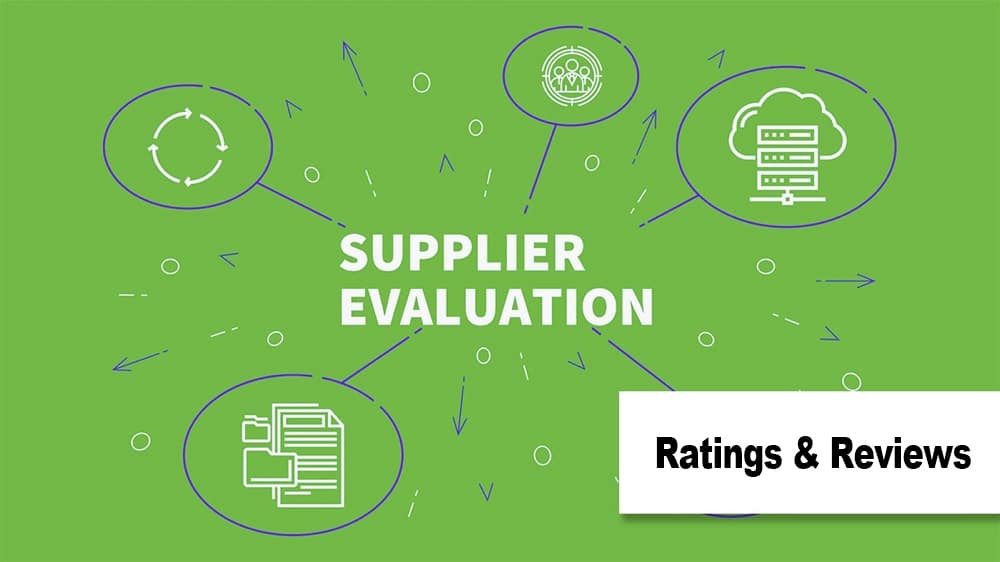
To determine a reliable supplier on Alibaba, you can check their ratings and reviews from previous buyers, as well as their business credentials and contact information.
You can also request samples or visit the supplier’s factory to assess the quality of the products and their production capabilities.
It is better to do business with trade assurance suppliers, which provide protection for your payments in case the supplier does not deliver the products as agreed.
3. Can I Negotiate the Price of Products on Alibaba?
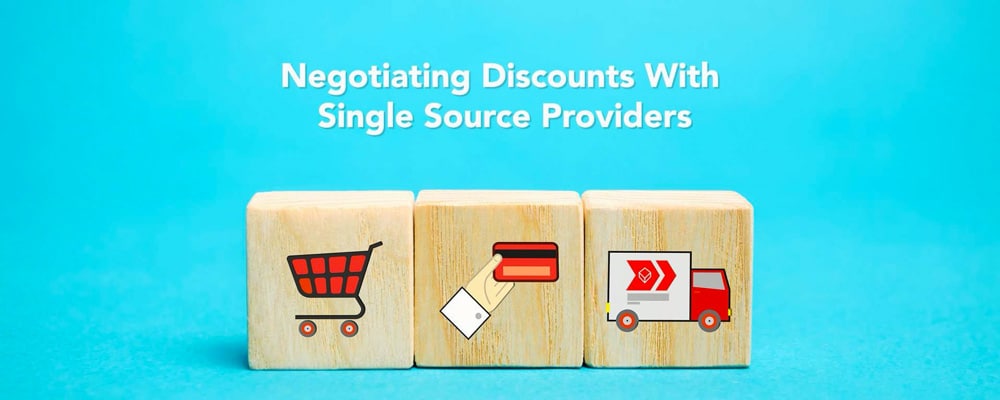
Yes, you can negotiate the price of products on Alibaba with the supplier.
It’s important to be prepared to negotiate and be open to compromise, but also make sure to protect your own interests.
You can negotiate the price, as well as other terms of the purchase, such as payment and shipping costs.
4. How Long Does the Alibaba Shipping Process Take?
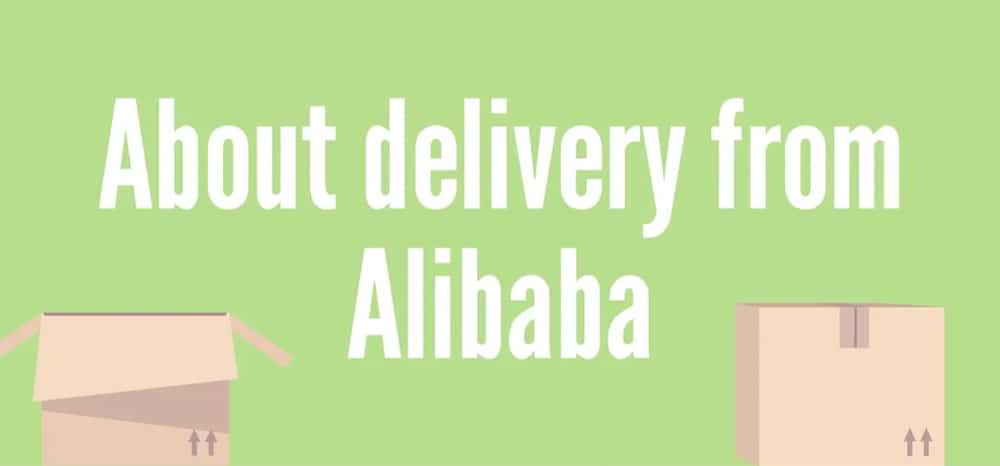
The shipping process on Alibaba will depend on the location of the supplier, the shipping method, and the size and weight of the products.
Some suppliers may offer faster shipping options for an additional cost, while others may have longer lead times.
Conclusion
With a little bit of effort and due diligence, you can make a successful buy from Alibaba and benefit from all that the platform has to offer.
It is important to do your research and carefully consider your options before making a purchase, as you want to ensure that you are getting the best value for your money.
We are Yansourcing, a leading sourcing company in China, dedicated to helping our clients source products from China at the most competitive prices. If you are interested in importing from China, please feel free to contact us.


